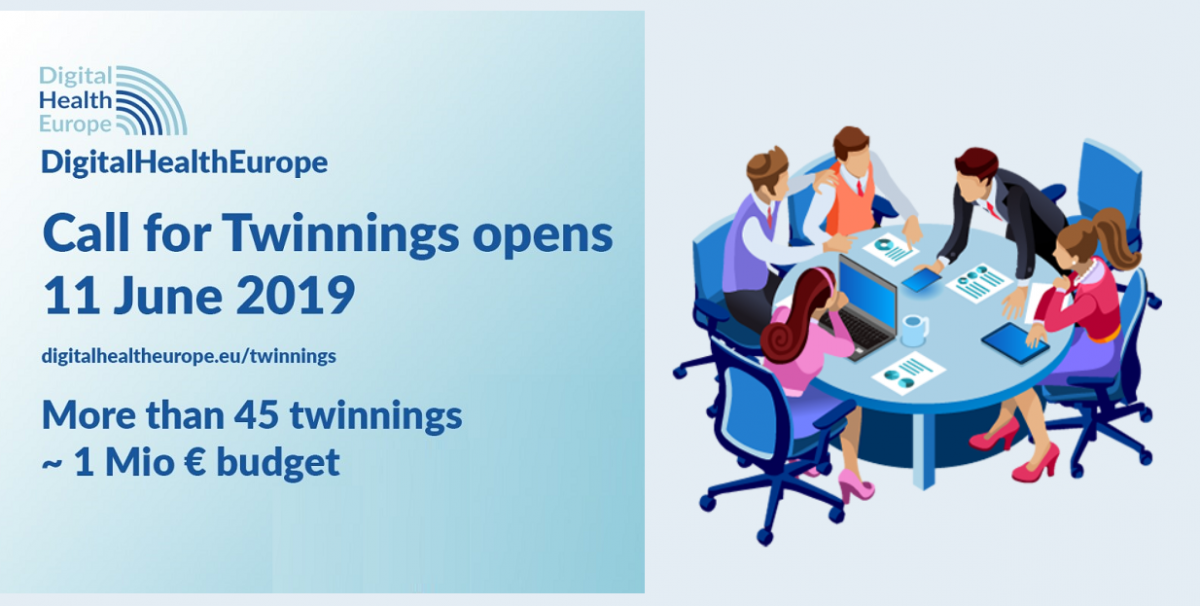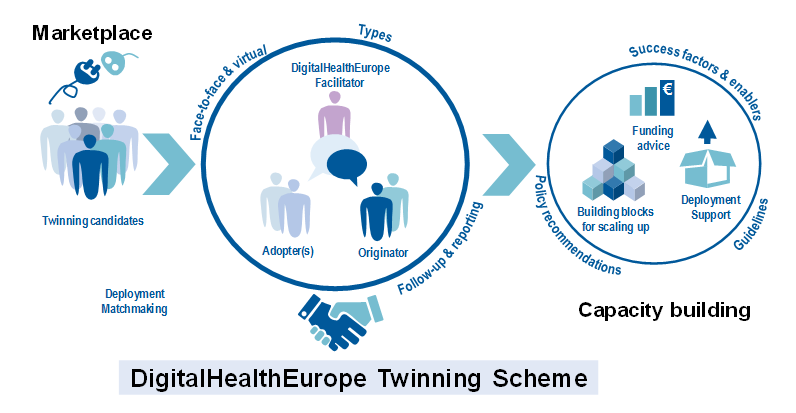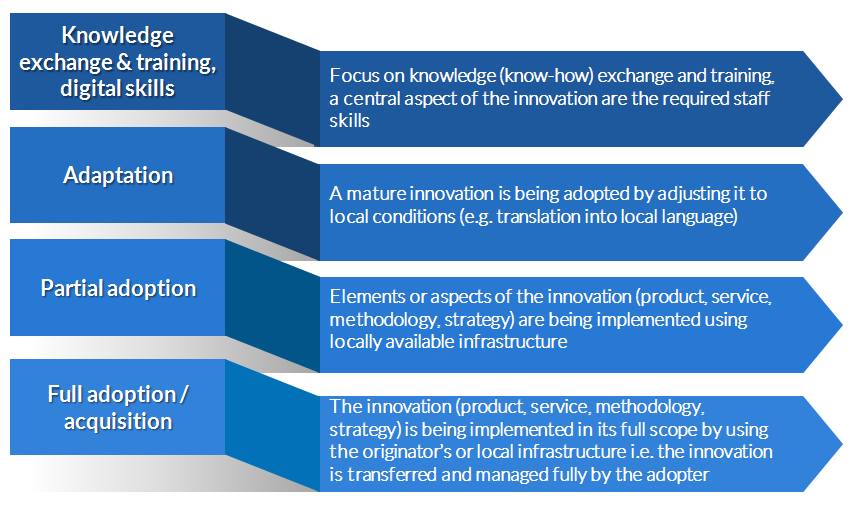
The DigitalHealthEurope project is launching a twinning scheme in June, providing almost €1 million for more than 45 twinnings – and they're now calling for tenders (applications from June 11 until August 7, 2019).
The DigitalHealthEurope project
The core mission of the DigitalHealthEurope (DHE) project: Support to enable the digital transformation of health and care in the context of the Digital Single Market strategy, empowering citizens and building a healthier society. In brief, the program aims to support digital health and care innovation initiatives in the European Union, with three priorities in mind:
- Citizens’ secure access to and sharing of health data across borders - enabling citizens to access their health data across the EU;
- Better data to advance research, disease prevention and personalised health and care - allowing researchers and other professionals to pool resources (data, expertise, computing processing power and storage capabilities) across the EU;
- Digital tools for citizen empowerment and person-centred care - using digital tools to empower people to look after their health, stimulate prevention and enable feedback and interaction between users and healthcare providers.
According to Vincent Keunen, founder of Andaman7: “These goals are great and really in line with what patients want. We see it everyday in our interactions with patients. Andaman7 was built, then fine tuned, based on patients suggestions and requests. So we are happy to see Europe set forth goals that are completely in line with those of Andaman7 and patients.”
Deploying digital solutions is at the forefront of the project’s approach. To this end, successful initiatives will be identified and analysed, using assessment tools. Highly impactful and replicable initiatives will be selected and given the opportunity to scale up, with the aid of instruments such as matchmaking and a twinning support scheme.
Collaboration in order to accelerate
In DigitalHealthEurope, twinnings are used as one mechanism for accelerating fulfilment of the digital transformation of health and care (DTHC) priorities of the Digital Single Market, by enabling the expansion of innovative solutions from one European region or country to another. The approach has been successfully applied in a number of EU projects and studies, including the ScaleAHA study, which funded 20 twinnings.

In practical, the region/country with the innovative practice is called Twinning Originator, and the implementing region/country is referred to as Twinning Adopter. There can be more than one Twinning Adopter per twinning. In some cases, third parties may be involved, e.g. as an external facilitator or as tenderer/Twinning Contractor. Interested organisations and individuals will first exchange ideas on twinning solutions which they can offer or would like to adopt. A twinning marketplace is set up by DigitalHealthEurope to facilitate the matchmaking process.
Twinnings can be grouped into five types. Each type is very specific. It has different conditions for its budget, deployment timeframe, and the experts required.

- Knowledge exchange and training: This type of twinning mainly targets local authorities: they can be authorities that are not too experienced in EU networking, but are eager to learn from other regions in Europe. Here, the twinning provides a first step to discuss a concrete solution (product, service, methodology) and its transfer to the adopting region(s). The twinning is used to build capacity. This includes identifying staff, setting up a process roadmap, and defining expected outcomes.
- Adaptation: This type of twinning is suitable for multiple adopters (i.e., one originator can work with several adopters). The adaptation process across adopters is expected to be very similar. Well-established solutions are adapted to the local context (e.g. translating the contents of a mobile app, introducing a prevention programme).
- Partial adoption: This type of twinning is suitable for local authorities that wish to implement aspects of an originator’s innovative approach. Twinnings that perform a partial adoption will have to provide concrete evidence on the potential impact of the adoption, as well as the reasons why a full adoption is not possible (e.g. because they have different healthcare systems, organisations, or reimbursement schemes).
- Full adoption / acquisition: This type of twinning mainly targets local authorities with well established relationships with other authorities in Europe (e.g. through memorandums of understanding, past EU project partnerships, etc.) and which have already planned to collaborate on a specific topic/solution. The twinning aims to achieve a full adoption of the solution in the adopting region(s) using local infrastructure (including adaptation) or the originator’s infrastructure (via acquiring or licensing it using appropriate business models).
The total budget for all twinnings to be funded in this call is € 932,000. Depending on the type and ambition, the budget per twinning may range from € 5,000 for knowledge exchange & training up to € 43,000 for full adoption of the digital solution.
Call for Twinnings
More than 45 twinnings opportunities – between more than 90 organisations – will be organised. Funding will be provided to carry out twinning activities that will take place between September 2019-August 2020. Participation in the twinnings is open to regional government bodies and health and care providers, or organisations that have an established contractual or other legal link to those bodies/providers.
The first important step towards applying for twinning in DigitalHealthEurope is to find suitable twinning partnerships. Get in touch with potential partners with offers that interest you and start planning your twinning together! Click here to consult Andaman7's twinning offering. The deadline for submission of twinning tenders is set on August 7, 2019 and the twinning applications are planned to be evaluated in August 2019. Notifications of award of twinning actions will be sent towards the end of August.
Examples of call topics (in green you will find the current services and capabilities of the Andaman7 platform) :
- Citizens' secure access to and sharing of health data: secure online portal, citizen’ access to EHR, PHR shared with health professionals, citizen enabled cross-border patient summary and/or ePrescription, citizen-controlled data donation,
- Better data to promote research, disease prevention and personalised health and care: ICT for personalised medicine, genomics, real-world data use, data analytics/Artificial Intelligence, (rare) disease registries, digital tools for public health, reuse of EHRs for research,
- Digital tools for citizen empowerment and for person-centred care: Integrated Care, ICT supporting integration of health and social care services, mHealth systems, wearable devices for monitoring and prevention, alerts & reminders, self-management, homecare, patient feedback and reporting of outcomes, virtual coach, robotics, independent living, management of frailty and falls prevention.
Source: https://ec.europa.eu
Get funding to work with Andaman7! Reach us at B2B@andaman7.com.







